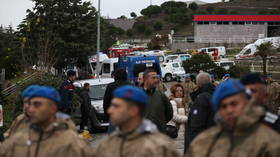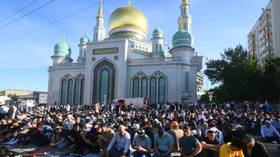Pesky poplar
Every summer, Moscow gets caught in a blizzard of poplar fluff, which marks the change of seasons in the Russian capital and can make life unbearable for many of its residents, as allergies flare up and drains clog.
“Every year, the beginning of May and all through June is just torture for me. I survive on allergy pills. It’s everywhere I go; there are even piles of it in my apartment. Thankfully, in my area, most of the poplar trees have been chopped down,” says Milena, a victim of this fuzzy phenomenon.
The cotton dust-bunnies travel for miles, gathering in clusters and provoking allergies.
“This fuzzy puff is actually the seed of poplar trees. The main aim of all animals and trees is propagation, and that is why female poplar plants produce these fuzzy puffs. The only way to fight this is to plant male poplars only, not female,” informs Katerina Romanova, phytologist from Moscow State University.
Apparently, it’s hard to tell the boys’ seeds from the girls’. Though that’s little consolation for Milena.
“I heard a story that it was Stalin who started it and then they mixed up the seeds.”
Indeed it was Stalin who started the overwhelming trend of planting these trees all across Russia. The tale has it that he ordered female poplars to be planted, and intended to use the cotton for other purposes like making explosives.
The harmless-looking fluff is actually something of a powder-keg. Firemen say it's like a fuse waiting to be lit.
“It’s not dangerous by itself, but it is extremely flammable. If set on fire, it spreads in seconds. For instance, from balconies, where it accumulates, into the apartment itself. We try to prevent hazards by spraying the roads, but most of the time it’s people’s own fault, usually just kids playing and setting these cotton balls on fire just for the fun of it,” explains Sergei Anikeyev, from the Fire Department of Russia’s Emergency Ministry.
So, it causes fire, provokes allergies and even clogs radiators – but it's not all bad!
“Poplars are very easy to grow. They are very resistant to dusty polluted city areas. The fact is, they produce special substances which kill pathogenic germs in the air, and clean the air,” defends poplar phytologist Katerina Romanova.
Despite all the fuss, it’s only once a year that this fluff flies about, floating in the breeze. A beautiful sight, as long as you keep your mouth shut.













